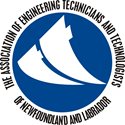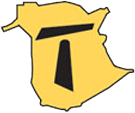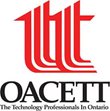Profession
Definition
Engineering technology is the part of the technological field that requires the application of scientific and engineering knowledge and methods combined with technical skills in support of engineering activities. Applied science is a discipline of science that applies existing scientific knowledge to develop more practical applications, like technology or inventions.
An applied science or engineering technician apply practical solutions to well defined applied science and engineering technology problems. Technicians define and troubleshoot problems, developing a deep understanding of their particular scope of work, becoming experts in specific technical areas.
An applied science or engineering technologist apply creative solutions to broadly defined applied science and engineering technology problems. Technologists are innovative thinkers with an aptitude for mathematics and a broad understanding of the principles of applied science and engineering technology.
Exciting Opportunities
The world of engineering technology and applied science offers many exciting opportunities with the diversity of sectors, businesses and roles. Companies and orgnizations in the industry contribute billions of dollars to the Canadian economy and employ over 400,000 engineering technicians and technologists.
Engineering Technology and Applied Science Disciplines
- Architectural, building, and construction
- Bioscience
- Chemical
- Computer
- Civil
- Electrical
- Electronics
- Environmental
- Resources
- Mechanical
- Geomatics
Type of Work
Engineering technicians solve technical problems. They build or set up equipment, conduct experiments, and collect data and calculate results. They might also help to make a model of new equipment. Some technicians work in quality control, where they check products, do tests, and collect data. In manufacturing, they help to design and develop products. They also find ways to produce things efficiently. There are multiple fields in this job such as; software design, repair, etc. They may also be people who produce technical drawings or engineering drawings.
In general, the work of engineering technologists focuses on the applied and practical application of engineering principles. Engineering technologists are employed in a large and wide array of industries, including manufacturing, construction, industrial, maintenance, and management. They may be hired as managers of technology or engineering, depending on the technologist's educational emphasis on management. Entry-level positions (such as product design, testing, product development, systems development, field engineering, technical operations, and quality control) are all common positions for engineering technology graduates.
Click on the link to check out profiles for an engineering technician and engineering technologist.
Contribution
In 2013-2014, there were 400,000 engineering and applied science technicians and technologists in Canada active across a broad range of industries. These technicians and technologists and contributed $54.7 billion to the economy in 2011 – 3.3% of Canadian GDP.
For more information on the economic contribution of engineering and applied science technicians and technologists in Canada, click on the image below.

Employment
Engineering technology and applied science technicians and technologists work across a wide range of occupations and industries.
The employment growth for this occupational group has strongly outpaced overall employment growth for Canada as a whole for the past 15 years, due in part to Canada moving towards a knowledge economy.
.png.aspx?width=600&height=364)
Source: The Conference Board of Canada, Canada's Engineering and Applied Science Technicians and Technologists.
Compensation
Engineering techncians and technologists can earn a very good standard of living. Research clealy indiciates that becoming certified increasing one's earning potential. The following average compensation* figures are from the Salary Survey 2016 - Members Perspective conducted by Ontario Association of Certified Technicians and Technologists.
| Profession Type |
Average Compensation |
| Certified Engineering Technologist |
$93,912 |
| Certified Technician |
$86,440 |
| Non Certified Technician/Technologist |
$69,752 |
| Industry Type |
Average Compensation |
| Public Sector |
$86,804 |
| Manufacturing |
$88,408 |
| Non-manufacturing |
$88,563 |
| Role Type |
Average Compensation |
| Senior Manager/Director |
$135,398 |
| Supervisor |
$89,615 |
| Technician/Technologist |
$72,105 |
* Compensation includes base salary, bonuses, overtime pay, profit sharing.
Stakeholders
The industry comprises of a number of stakeholders including the following.
- Businesses, both public and private (see profession page for chart of employment sectors)
- Educational institutions (see education page for more information)
- National professional associations (see below)
- Provincial certifying bodies (see below)
- Accrediting bodies
Certification
Engineering technology and applied science technicians and technologists may earn a professional designation through their provincial certifying body. This designation can offer significant career and personal benefits. For more information click on the logos below.

.png.aspx?width=200&height=200)
.png.aspx)






Technology Professionals Canada
Technology Professionals Canada was established in partnership by provincial regulatory bodies in Alberta, British Columbia, Ontario and Saskatchewan. Together these four bodies represrent more than 85% of the technology profesionals in Canada. The bodies' primary function is protect the public by regulating the conduct of engineering technology and applied science professionals. Click on the image below for more information.
